Improve Your Mental Math in Just 10 Minutes a Day
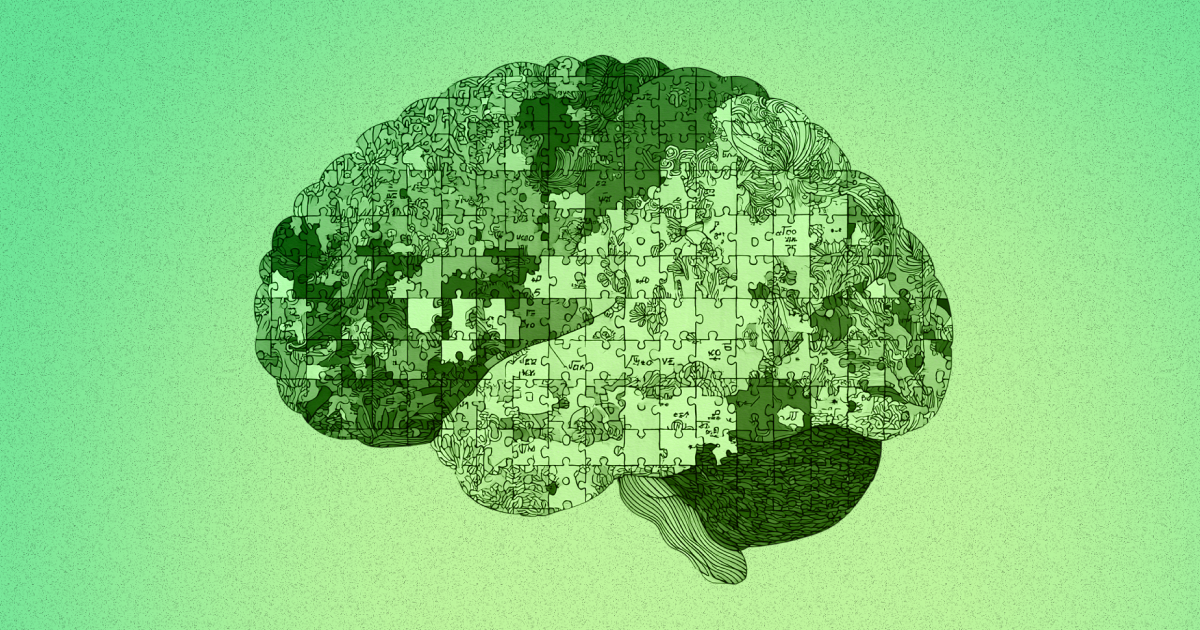
Mental math calculation is one of the most underrated yet often used skills by people, and they tend to underestimate how impactful it can be for daily life. And just like with any other talent, mental math skills can be significantly improved. But that begs the question, "Why should you sharpen your mental math skills anyway?"
Learn the significance of mental calculation, its basics and different tricks and techniques you can use for training by reading down below!
Why mental math skills matter in 2025
People may not realize it, but quick mental calculations are part of daily life. From the moment you wake up and get out of bed and up to the end of the day, you're doing small bursts of math inside your head.
There are a lot of daily scenarios you mentally use math for, from time estimations to the gas consumed per distance by your car. All of these things can be boiled down to basic math problems in your mind, and you immediately resort to crunching numbers in your head, whether consciously or subconsciously.
Aside from those, here are other reasons why it's necessary to continue solving math problems mentally:
✅ Strengthens memory recall
✅ Improves focus
✅ Boosts problem-solving skills
✅ Enhances logical reasoning
Studies that support the effectiveness of mental math practice
Math is, of course, a system that is completely grounded in logic. There are many academic studies that quantify and prove the enhanced performance of those who sharpen their mental mathematics and continuously solve problems with their arithmetic skills.
Here are some examples of research that show the advantages of mental arithmetic:
Better number sense
A comparative study was made where two groups of primary school students were taught with two different learning curricula—traditional math lessons and experimental mental computation strategies. After gauging the performance of both groups, the experimental group outperformed the other, showing higher average scores in number sense tests.
Enhanced cognitive skills
A research paper was done while observing primary school students, where a group was trained with memory tasks, mental math calculations and computer-based learning. The results showed that the trained students had enhanced cognitive skills and better performance in math and reading compared to the untrained ones.
The researchers concluded that these skills also translated into better overall academic performance.
Also effective for older people
The benefits of enhanced cognitive skills via mental math training aren't exclusive to children and students—they're also very effective for the elderly.
It's common knowledge that as we grow older, most of our senses, including our minds, tend to weaken along with our bodies. But with the right lifestyle, mindset and more, this decline can be significantly mitigated and improvements can even be felt and observed, where mental math is known to be one of the most effective activities available.
This study shows notable improvements in attention, mental speed and other cognitive functions among randomized subjects aged ~70-86 after continuously reading and solving mental arithmetic problems.
Snappier and more accurate responses
A research paper involving primary students detailed how instructing with the schema teaching method combined with mental arithmetic strategies resulted in better overall student performance. After the 14 days, when the children undertook the specific instruction style, they showed snappier responses, better accuracy and more stable solving practices.
The researchers also reiterated that mental arithmetic drills were effective in improving the skills of the students.
Becoming better at mental math
While it is true that there are geniuses born to certain subjects and fields, math is one of the formal academic systems best known for rewarding effort and passion, where a normal Joe can stand toe-to-toe with a Wall Street quant through sheer persistence and love for numbers. And with mental math, there are many ways to become proficient in it that it becomes second nature!
But to become a skilled mental solver, you must build your foundational skills. Here is our process for improving your mental arithmetic skills:
1. Master your number sense
Number sense is your intuition, your gut feeling when it comes to numbers. It refers to your sixth sense on how numbers behave, relate and scale. For example, just seeing the number 33, you already know that it is divisible by 11 and 3, and that it can go up to numbers that end in 2, 3, 6 and 9. Even you can't explain it through words, you know by intuition that a number has specific characteristics.
Just like how master martial artists learn combat intuition, or how veteran cooks learn exactly how much spice to put on a dish without using measuring tools, number sense can also be learned through experience and practice.
To master your number sense, here are the following practices you can try for yourself:
- Try estimating things in your world - It's exactly as it sounds. For example, if you're going to ride the subway, try guessing in your mind how many people will come aboard during this time of day then check if you were right. It doesn't have to be right, just the act of observing and noting the behavior of the "numbers (in this case, the people who come aboard)" is already a way to sharpen intuition.
- Approximate, then calculate - Another good practice is trying to approximate equations or expressions in your head first before getting the real results with a calculator. For example, you're doing snap estimations for a number, let's say 3,549, and you approximate that adding 712 to the given of 2,867 will result in it. That's already a good practice! Then try to calculate the real answer. Then keep doing this. It doesn't matter how far or near you are to the real answer; the closer you get with your guesses, the more your number sense will evolve, and you will start noticing the patterns in numbers.
- Play mental math games - This is probably the most natural and entertaining way to improve your number sense. Games like Mathler and Sumplete are really good in sharpening intuition, especially since you have hint systems that produce patterns you can remember and learn from. The more you play them, the more your intuition progresses.
2. Memorize basic math facts
It's one thing to have good intuition, but you also have to know the basic facts of numbers, along with rules, especially when it comes to operations. The more you know about these, the more ingrained they become in your mind, and over time, they act as mental math tricks that help break down even the most complex equations.
- Order of operations - A core rule to remember in any kind of equation. If you're not sure how to proceed with your mental calculations, remember the acronym PEMDAS: Parentheses, Exponents, Multiplication/Division (left to right), Addition/Subtraction (left to right).
- Single-digit sums and differences - Always drill the sums and differences of single-digit numbers, like 9+8=17 or 8-2=6. It seems simple enough, but practicing until it's second nature is important before moving on to bigger numbers.
- Complements of 10 - Another seemingly basic thing to remember, like 7+3=10 or 4+6=10. But the more you remember which numbers create a 10, it scales up easily. The simple 7+3=10 can turn into 67+33=100, and that into 867+133=1000. One glance at a basic equation, as long as it ends with something that is a complement of 10, no matter how long the number is, becomes easy to solve in your mind.
- Multiplication tables - It might sound like we're taking you back to primary school, but we can't stress the importance of knowing your multiplication tables enough. These are skills that are seemingly so basic that they should no longer have any bearing later in life, especially among adults, right? But you'd be surprised at how useful multiplication is once you've mastered the basics and move on to multiplying bigger numbers in your head.
- Divisibility - Another basic thing that we really want everyone to try revisiting. To become an expert in mental math, just glancing at numbers should give you all the information you need, whether a division equation will work or not. Like, seeing the number 47, you already know which numbers can't be used to divide it into a whole number (numbers that aren't fractions, decimals or negative), or why 29 can't be divided by 3 even though it has a 9 at the end.
There are a lot more, like the powers of 10, rounding rules, basic properties, squares of numbers, etc. But what we listed above are the very basic facts that are significantly useful for everyday use of mental math.
3. Use number sense + basic facts for daily life
The ultimate test and training of your mental math fundamentals. Using your intuition alongside your knowledge of the basic facts of math daily will exponentially increase your level of mastery. In fact, you're probably doing all of it every day without knowing it! If you're not sure whether you're doing it right, re-assess the list, drill yourself back and forth, and you're going to be very surprised at how handy you've gotten with snap solving.
As we said earlier, math is one of the best formal systems that reward effort and repetition. From solving a math trainer puzzle book to estimating how many eggs you should cook to fill up a plate, constant use of your fundamentals leads to the best results.
Mental calculations in daily scenarios
If you're struggling to imagine how useful mental math is for living, here are some examples you're probably going to recognize:
Morning preparation for work or school

- You wake up and check the clock.
- You then quickly subtract the current time from the target time for work or school.
- Based on the difference, you then estimate how much time you have left to do your morning routine. Do you still have enough time to hit the snooze button on your alarm? Are you running late? You can already surmise from experience and the basic subtraction you made in your head.
Afternoon activities at work or school
Work
- You're given a set amount of tasks for the day.
- Enumerating the tasks in your mind, you then assign approximate time values to each and the amount of effort needed to finish them.
- You now divide your work period hours based on the number of tasks and their difficulty, while also mentally allotting time for breaks and possible work extensions.
School
- It's lunchtime, and you and your friends are planning to eat together. Some are already with you, and the others will catch up shortly.
- The seats for tables are limited, and it's starting to get packed. You mentally add the current group you have and the others who are going to follow.
- Based on the sum, you pick out the ideal empty table that will seat all of you, including those not currently present.
Evening dining with friends
- You and your friends plan to have pizza for dinner together, so you all meet up at the restaurant.
- Everyone agrees to share the bill for the extra-large pizza, but not for other side items like pasta and soup.
- In your mind, you get the price of the pizza, add the tax then divide it by the number of people present at the table.
- After eating, you get the bill and then split the cost based on the quotient.
Gauging distance with your favorite playlist
- You travel a specific distance every single day, and always have your handy playlist to listen to.
- You don't count what track number you're on, but based on the song, you can already guess in your mind what time it is and where you are.
- From the number sense you've gained with the constant repetition of your favorite playlist and observation of your surroundings, you instinctively know if your travel is going smoothly, too fast or too slow.
- If you're going too fast, then you'll know because the usual song at that point of your travel isn't on yet, and you can start mentally adding the approximate time you've saved. This goes vice versa if the journey is too slow.
Grocery shopping
- You shop for the same necessities every time. You already know how much you should bring, regardless of the fluctuations in prices.
- As you browse the aisles in the grocery store, you can easily do operations in your head, even if their costs change. You know which items will put you in the red if you add them with a single glance, and which ones can still fit in your approximate budget.
- Before you even arrive at the check-out counter, you already know which bills and coins to pull out, as you've already done the calculations in your head. So even if the cashier gives you the wrong amount of change, you can easily inform them about it.
Best math trainer: gamified practice
Polishing and drilling your mental math tricks shouldn't be a slog. Almost all of us know that forcing yourself to learn something you're not interested in will just make progress a lot slower and boring. So what will make the journey of learning more sustainable and fun?
The answer is: games.
Gamifying your mental math practice makes it easier to improve, not to mention a lot more entertaining. Games, unlike dull math workbooks filled with walls of numbers and texts, hit you with different stimuli that urge you to keep going, like different colors, sounds and mechanics. This then significantly improves knowledge retention, and continuous play will also increase speed and accuracy.
TL:DR, the more you play math games, the faster and better you get at mental math.
With math games, there's also the tangible sense of growth and progression, ease of access and sense of community among other players. There are a lot more other factors that make puzzles and games like these so effective and popular that even math teachers have adopted them into their curricula.
Which games should you play for mental math improvement?
There are so many math puzzles and games available online that most people tend to get overwhelmed. Not to worry, we have recommendations you can trust right here.
If you're looking to enhance your grasp of operations...
Mathler
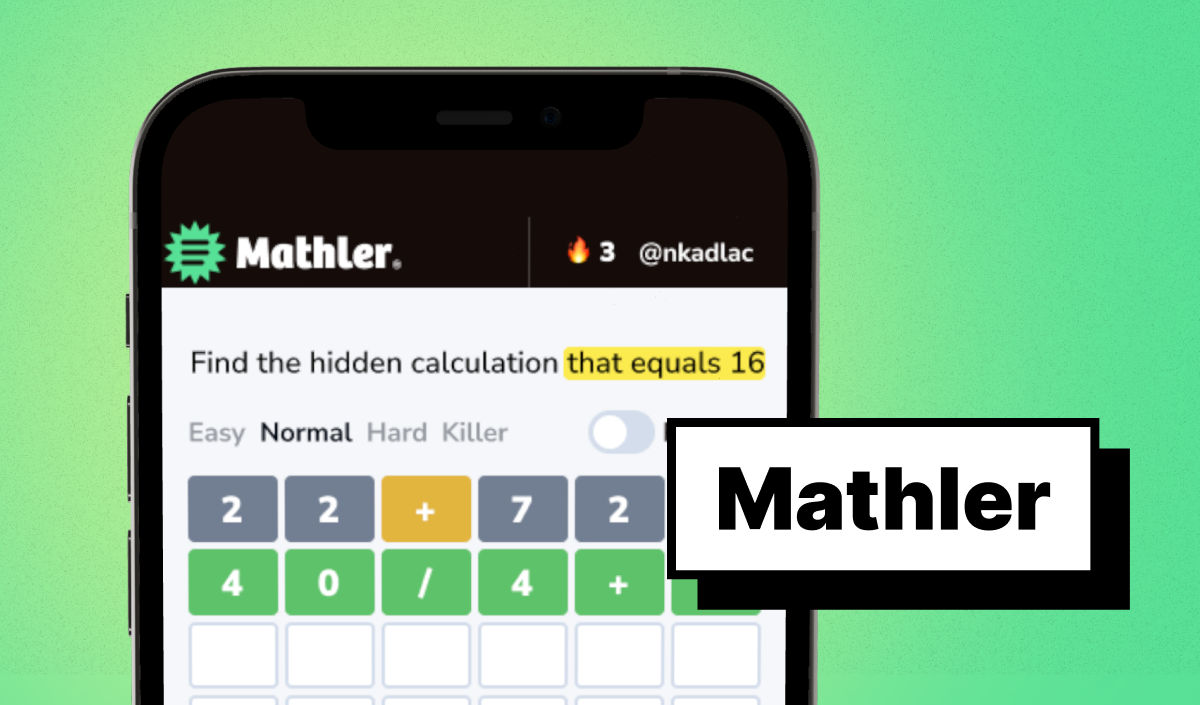
- Free and accessible
- Quick to solve (3-5 mins)
- Trackable progression via account, register here
If you're looking to improve your counting...
Hitori
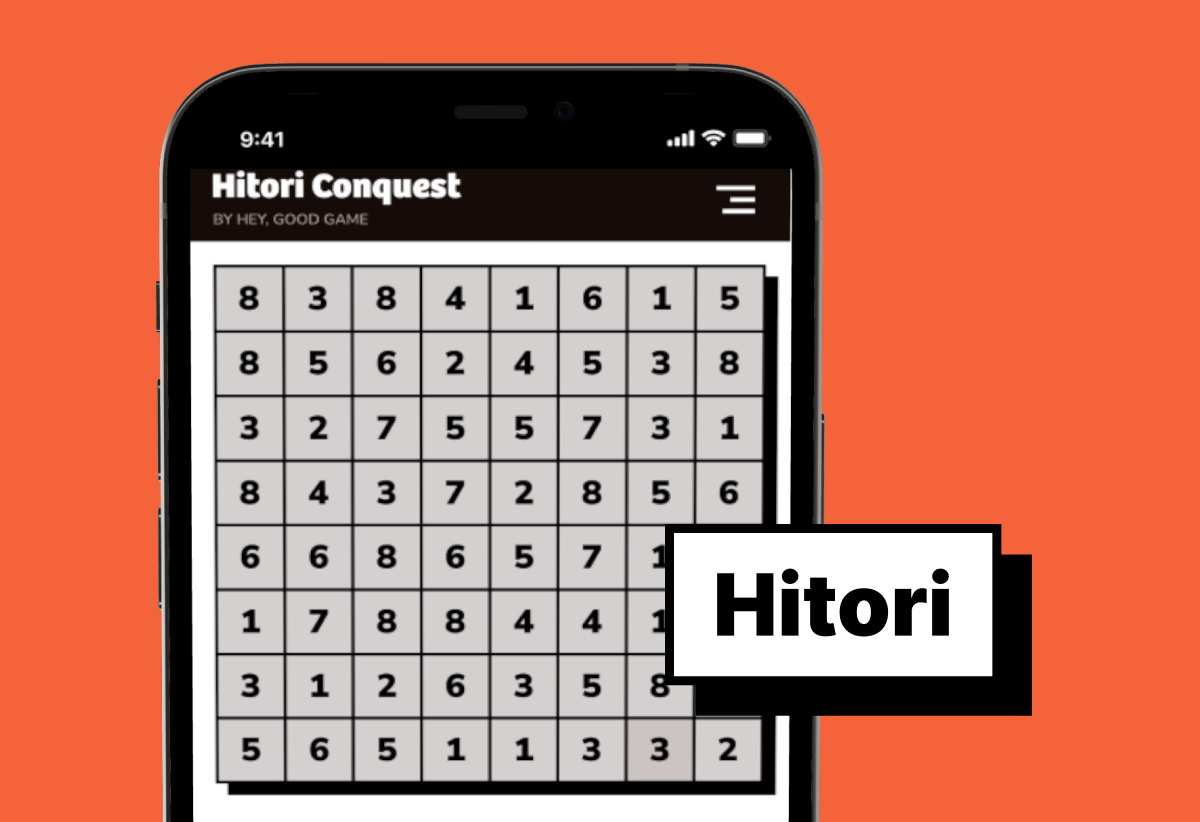
- Completely free
- Easy to pick up
- Adjustable difficulty via grid size
If you're looking for variety...
Nerdle
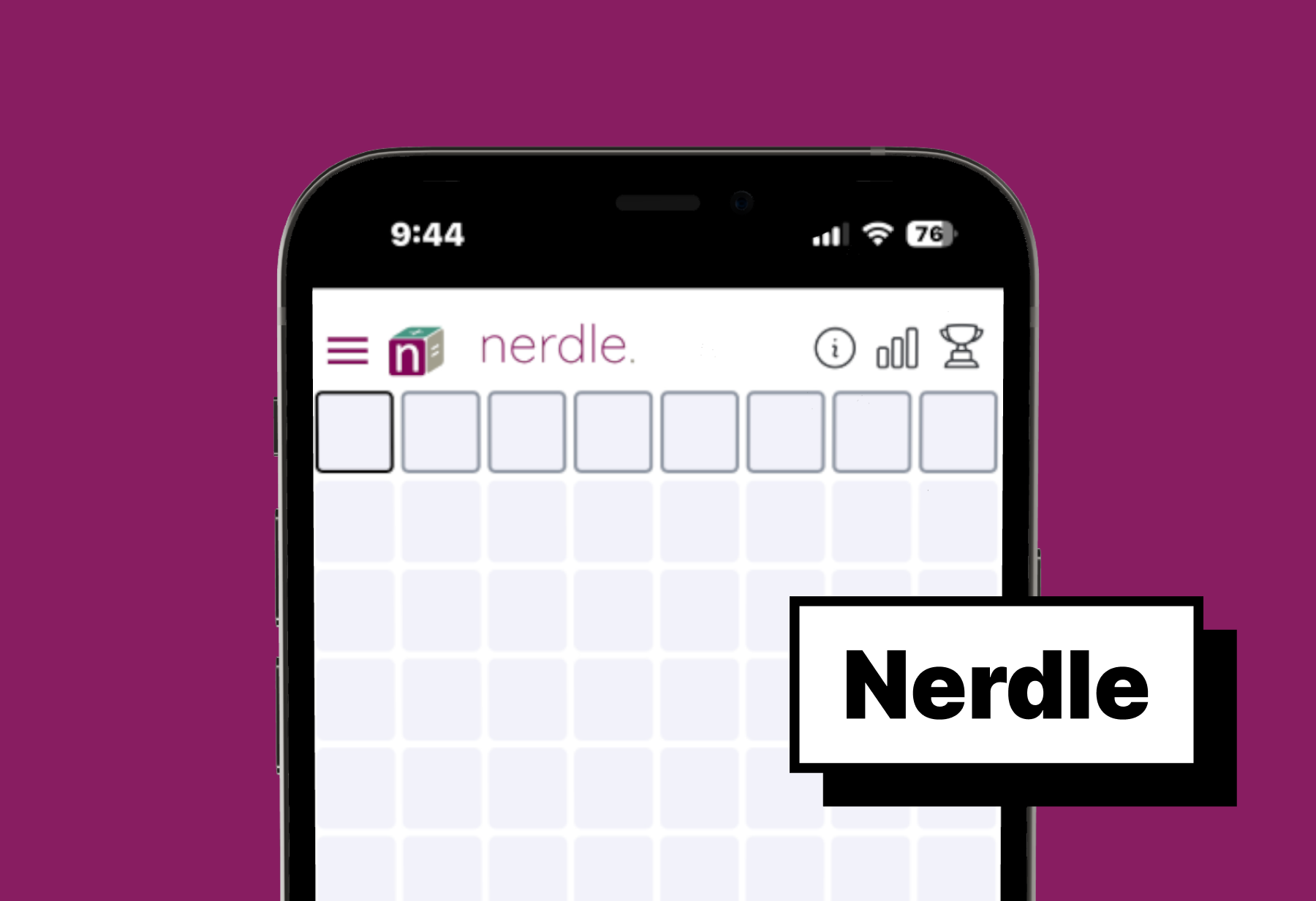
- Free-to-play
- Highly customizable
- Filled with many spin-offs and modes
If you're looking for something kids can play...
Sumplete
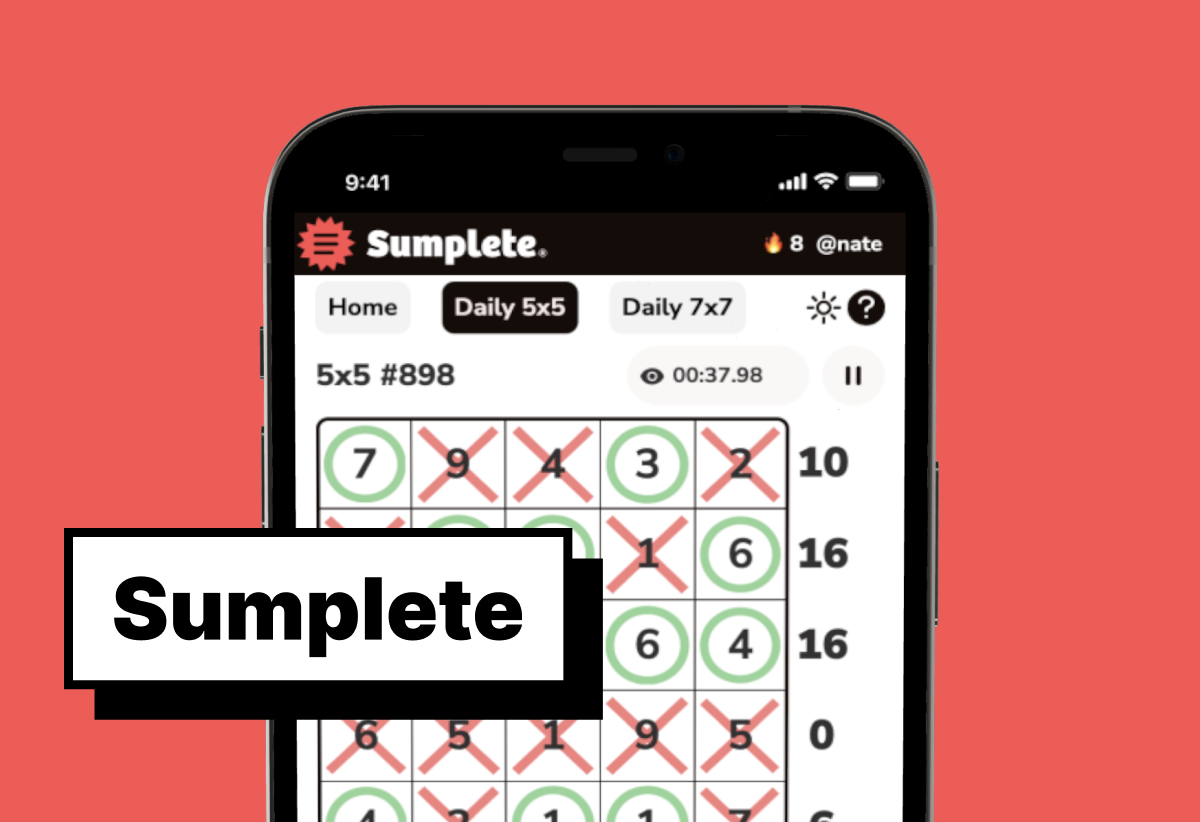
- Free and accessible
- Only deals with addition and counting
- Has a lot of difficulty settings
FAQs
What’s the fastest way to get better at mental math?
Constant use and practice through gamification (e.g., math puzzles and daily games).
Is mental math better than using a calculator?
It depends on the scenario. If you were going to solve a complex trigonometry problem, then a calculator would be better. But if it's basic arithmetic for day-to-day use, mental math is far more convenient, self-improving and versatile.
How long does it take to improve?
Every person takes to numbers differently. Some become experts in mental math in a few months, while others take a year or so. However, the most important part is not how fast you improve your mental math, but the retention and genuine appreciation of the skill.
Can kids and adults learn the same tricks?
100%. Math is grounded in logic and rules, and both apply to everyone and everything, and that includes the shortcuts and tricks. Regardless of age, gender, culture, etc., as long as it's something mathematical, all will arrive at the same answer. This is the reason why math is considered another "universal language".
Can teachers gamify math exercises?
Of course! We highly recommend our free Mathler e-book for classroom settings.
Boost your brain with more fun puzzles!
We hope that our mental math improvement guide was able to help you become a better solver. If you're interested in more mentally-enhancing puzzles, check out our math Wordle games and join the discussion in our Discord server today!